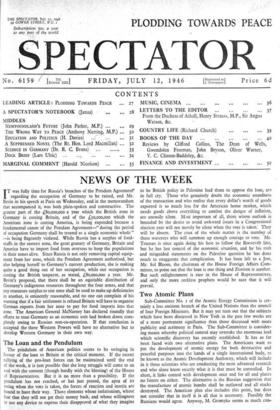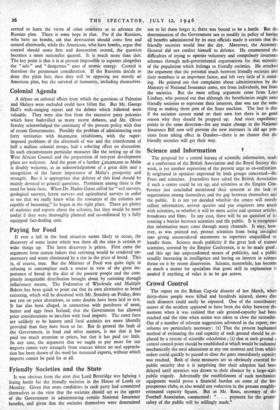Two Atomic Plans
Sub-Committee No. t of the Atomic Energy Commission is cer- tainly a less eminent branch of the United Nations than the council of four Foreign Ministers. But it may yet turn out that the subjects which have been discussed in New York in the past few weeks are of a more permanent significance than those discussed with more publicity and acrimony in Paris. The Sub-Committee is consider- ing means whereby political control may overtake the enormous lead which scientific discovery has recently established. It has so far been faced with two alternative plans. The Americans wait to put the development of atomic energy for both destructive and peaceful purposes into the hands of a single international body, to be known as the Atomic Development Authority, which will include in it those scientists who are conducting the most advanced research and who alone know exactly what it is that must be controlled. In short, it links control with development once and for all and places no fetters on either. The alternative is the Russian suggestion that the manufacture of atomic bombs shall be outlawed and all stocks destroyed. The American plan also includes this point, but does not consider that in itself it is all that is necessary. Possibly the Russians would agree. Anyway, M. Gromyko seems as much con-
cemed to learn the views of other countries as to advance the Russian plan. There is some hope in that. For if the Russians, who have no bombs, ask that destruction should come first and control afterwards, while the Americans, who have bombs, argue that control should come first and destruction second, the question becomes a mere nationalist quarrel. It is much more than that. The key point is that it is at present impossible to separate altogether the " safe " and " dangerous " uses of atomic energy. Control is therefore the paramount consideration. If the Russians decide to deny this plain fact, then they will be opposing not merely an American plan, but the survival of humanity, including themselves.































 Previous page
Previous page